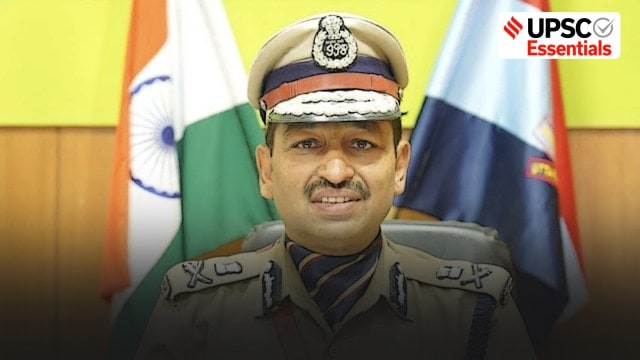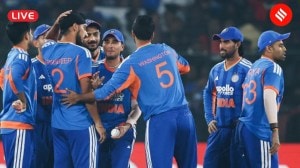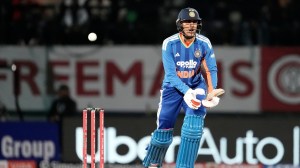
Let’s explore what it truly means to serve in today’s dynamic environment, examining not only the professional attributes necessary to tackle complex issues but also the personal values that underpin effective leadership in the civil services.
About our Expert: Ashok Kumar is a retired 1989 batch Indian Police Service officer of the Uttarakhand cadre, who served as the 11th Director General of Uttarakhand Police. He is currently the Vice-Chancellor of the Sports University of Haryana.
Manas: What does wearing the police uniform mean to you personally? Looking back, what have been your biggest learnings from your time in service?
Ashok Kumar: Wearing the police uniform was both a privilege and a profound responsibility. It filled me with purpose and pride every single day. I remain deeply grateful to the service for giving me the opportunity to serve the people and uphold the rule of law. The uniform is not just attire. It is a symbol of trust, accountability, and public service.
Over the years, policing in India has evolved significantly. Today’s police force is more transparent, more accountable, and increasingly reliant on technology— such as electronic surveillance, CCTVs, and digital casework. One of my biggest learnings is that the essence of effective policing lies in empathy, fairness, and the relentless pursuit of justice, irrespective of external pressures. Service in uniform teaches you the real meaning of resilience, leadership, and humanity. My central learning has been that if you have the willpower to help people, there is ample scope and opportunity to deliver within this very system.
Manas: What are some of the biggest misconceptions people have about Civil Services—and specifically, the Police Services?
Ashok Kumar: One of the most common misconceptions is that civil servants enjoy unchecked power and status. What often goes unnoticed is the immense responsibility, procedural complexity, and accountability that come with the role. In the case of the police, popular media tends to portray extremes. They may be either glorifying the force as heroic and invincible or vilifying it as corrupt and brutal. The reality, however, lies in between.
Story continues below this ad
Policing is one of the most demanding public services. It involves daily interaction with people from all walks of life, managing complex law-and-order situations, and upholding constitutional values under intense pressure. It calls for unwavering discipline, high emotional intelligence, and a strong moral compass. It is not about glamour. It is about grit, service, and integrity.
Manas: We often hear troubling stories about corruption involving civil servants, including newer recruits. Sometimes it even involves things like fake certificates. What goes through your mind when you hear about such incidents?
Ashok Kumar: It is unfortunate but true that a section of civil servants become compromised even at the entry stage. I would estimate that 20–30% may show signs of such behavior early on, and this number regrettably increases to 50–60% as their careers progress.
While I have full faith in the integrity of the UPSC exam process, the issue of forged documents (especially in categories like the Economically Weaker Sections (EWS) and Persons with Disabilities) needs urgent attention. These certificates must be verified rigorously, or else the credibility of the entire system will be undermined. A fair process must remain not just in principle but also in practice.
Manas: India faces several new-age challenges—climate change, digital governance, social polarization, etc. What qualities and skills do you think modern Civil Servants must possess to tackle these issues effectively?
Ashok Kumar: India is evolving rapidly, and so are the challenges it faces. Today’s officers must be technologically literate to navigate the digital landscape of governance effectively. They should possess a strong understanding of environmental sustainability, inclusive policies, and social cohesion.
Today’s aspirants are more aware of global trends, technology, and governance models, and their exposure is far wider than before. However, this also means that the complexity of governance has increased considerably. Therefore, the demand for well-rounded officers—those who combine subject expertise with life skills like emotional intelligence, empathy, adaptability, effective communication, and a capacity for continuous learning—has never been greater. The ability to anticipate change and collaborate across sectors will be crucial for civil servants to address these emerging challenges with both competence and compassion.
Story continues below this ad
Manas: In recent Bollywood films, UPSC aspirants and civil servants like IAS or IPS officers are portrayed as heroic lead characters. How accurate are these depictions compared to real life?
Ashok Kumar: Cinema plays a powerful role in shaping public perception, and the portrayal of UPSC aspirants and civil servants as heroes is a welcome trend. These representations inspire youth—especially from underprivileged or rural backgrounds—to dream big and work hard. Films like 12th Fail have had a real impact, showing how determination can overcome adversity and turn aspirations into achievements.
That said, while films like Newton or Sherni attempt a more realistic portrayal, others like Dabangg and Singham tend to dramatize and oversimplify the complexities of service. Real-life civil service is not about cinematic heroism—it’s about consistent, tireless effort, dealing with nuanced situations, and making difficult decisions with limited resources.
Still, if these films can motivate even a handful of youth to pursue a life of public service, they’ve served a valuable purpose.
Manas: Traditionally, civil servants worked behind the scenes, but now many are very active on Instagram and YouTube. Do you think this trend is beneficial, or does it compromise the neutrality of the service?
Ashok Kumar: We live in the age of social media, and civil servants cannot remain completely disconnected from it. In fact, when used responsibly, platforms like Instagram, Twitter, and Facebook can be powerful tools for governance. They can help officers reach citizens directly, raise awareness about government schemes, and become more accessible for grievance redressal.
However, the concern lies in how social media is used. When officers use these platforms for genuine public service, transparency, and outreach, the impact is undoubtedly positive. But when the intent shifts towards self-promotion, image-building, or pushing personal narratives—even false ones—it undermines the core values of civil service: neutrality, integrity, and humility. Ultimately, it comes down to the intent. Social media can either be a tool for public good or a distraction that dilutes the spirit of service.
Story continues below this ad
Manas: Given the low success rate in the UPSC exam, many aspirants consider having a backup plan. What advice would you give about preparing a “Plan B,” and how should they approach it?
Ashok Kumar: The success rate in the UPSC examination is extremely low around 1 in 1000 candidates make it through. Therefore, having a well-thought-out “Plan B” is not just advisable; it’s essential. Aspirants should be clear-headed about alternate career options from the very beginning.
For instance, appearing for other competitive exams such as State Civil Services, banking, SSC, or CAPF can be viable alternatives. Professionals like engineers, doctors, or lawyers should also keep the option of returning to their core fields. Additionally, today’s youth can explore entrepreneurship or self-employment based on their skills and passions.
Government service is not the only way to serve the country or achieve personal growth. What matters is that you continue to contribute meaningfully, wherever you are. So yes, while chasing the UPSC dream, always prepare a realistic and constructive backup plan.
Manas: What advice would you give to young civil servants who are just beginning their careers?
Ashok Kumar: The civil servants are among the select few who have earned the privilege of serving this nation. India is on the path to becoming a developed country by 2047, and you are going to be one of the key drivers of that transformation.
Story continues below this ad
Always remember that you are a public servant. You are here to serve the people, not to chase power, wealth, or influence for personal gain. You will automatically get the power, status, and money required to live a good life.
Many civil servants lose their way and fall into the trap of corruption. I have seen firsthand that ill-gotten wealth rarely brings lasting value—neither to you nor to your family. It often leads to personal and moral decay. Most of it is never returned by the people with whom it is kept as benami property for secrecy.
So, remain honest, stay grounded, and focus on making a difference. Civil Servants will have access to resources, authority, and recognition but they must use all of it in service of the people, not yourself. Let your power be a tool for justice, fairness, and compassion. That is the true meaning of civil service.
Subscribe to our UPSC newsletter. Stay updated with the latest UPSC articles by joining our Telegram channel – Indian Express UPSC Hub, and follow us on Instagram and X.
For more suggestions regarding you can mail Manas Srivastava at manas.srivastava@indianexpress.com

































